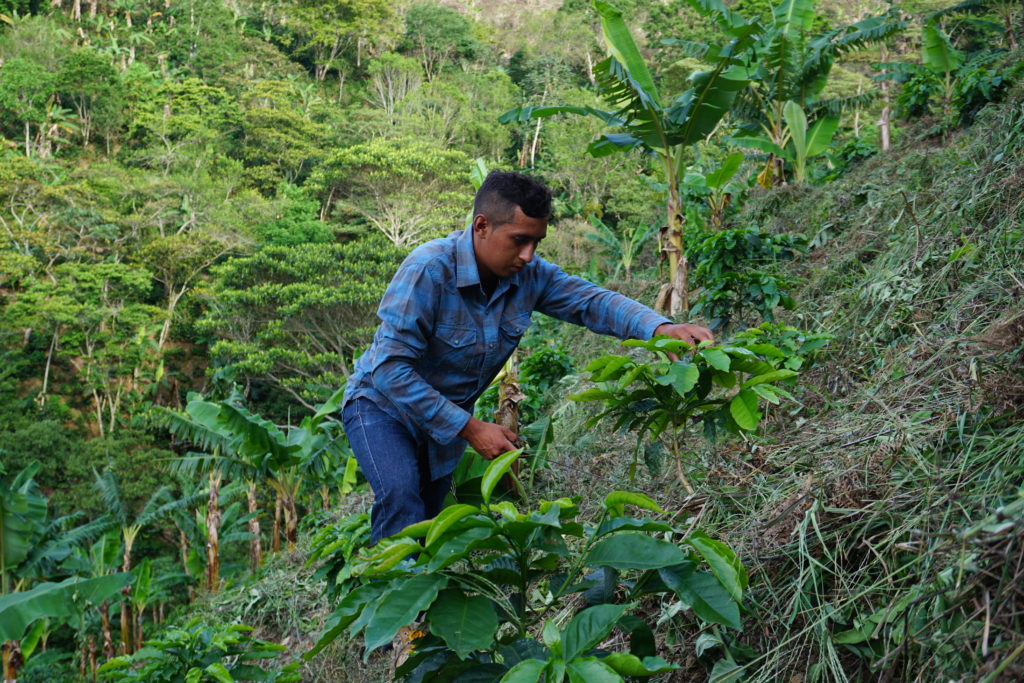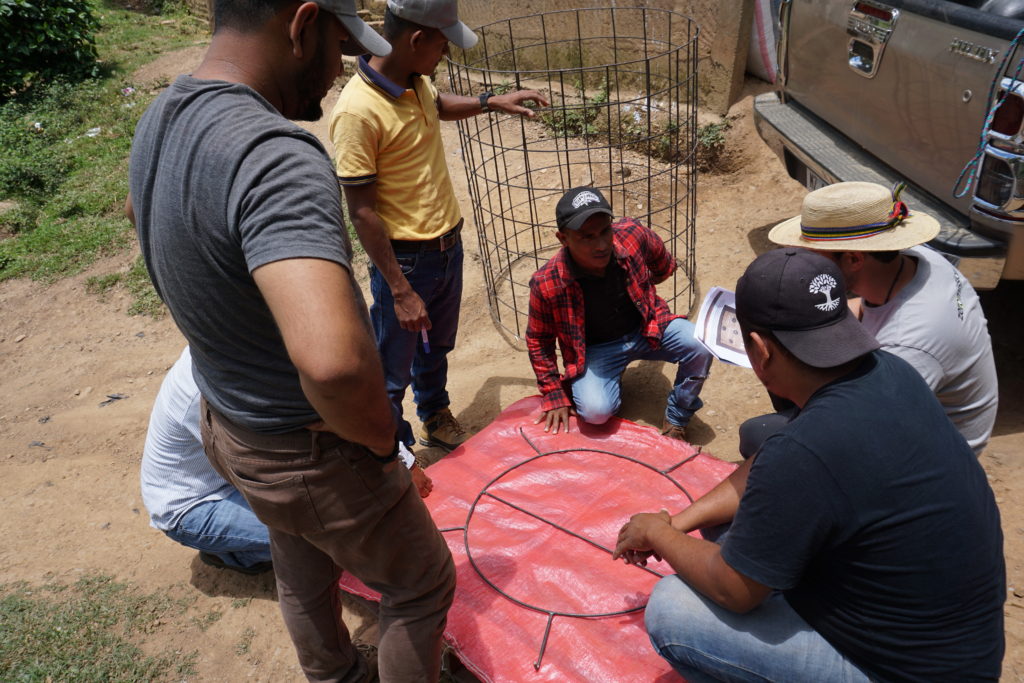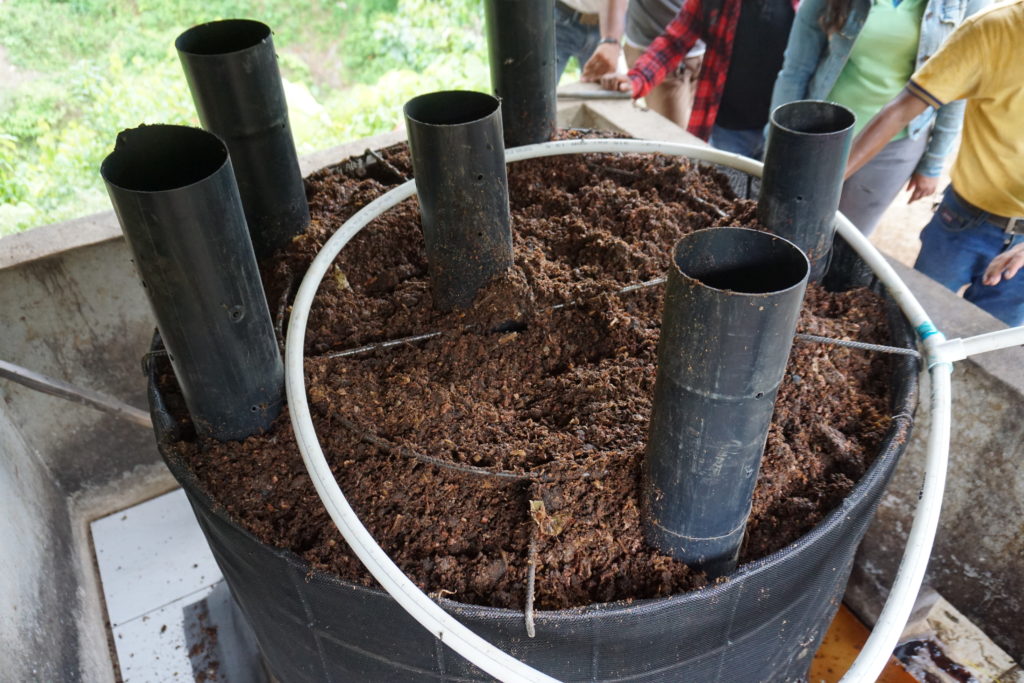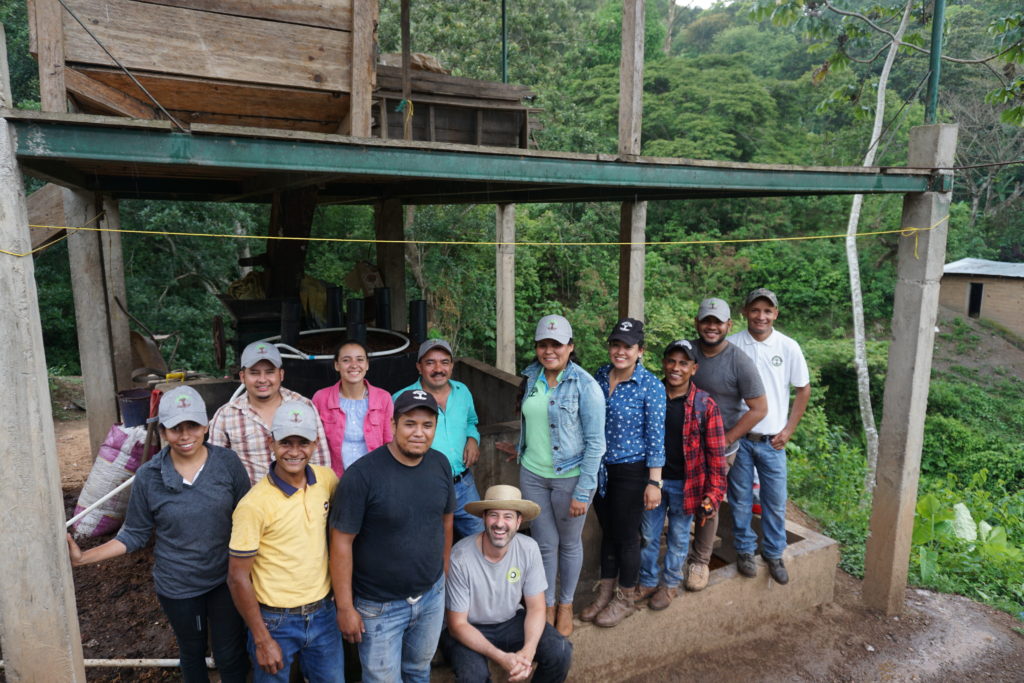Yelsin wakes up at 5 in the morning as the sun begins to rise over the town of San Juan de Rio Coco, nestled in the hills of Northern Nicaragua.

Yelsin’s first task today is to check on the several hundred coffee trees he planted 3 weeks ago. He climbs up the steep hillside of his farm and walks along a line of coffee interspersed with fruit and hard wood treelings. He stops every now and then, checking the base of a coffee tree and clearing competing plants. At this early stage, he wants to make sure his coffee trees stay healthy and grow fast.
Yelsin will have to wait 3 years until he can harvest his coffee. However, this is not a simple waiting game. Coffee trees are highly sensitive and will need care if he is going reach his target harvest. The trees planted with the coffee will provide shade cover, regulating temperature and protecting precious top soil from being washed down the hill when it rains. However, his real challenge is making sure the coffee receives all the nutrients it needs. Coffee, like most plants requires nitrogen, potassium and phosphorous alongside a host of micronutrients to be healthy. Some nitrogen will be provided by the trees he has planted around his coffee. As they shed biomass they will create a natural composting layer, building soil around the coffee. However, it is not enough. Without fertilizer the coffee will never reach the quality and quantity needed for a profitable harvest.

And here is Yelsin’s dilemma. Organic coffee will receive a premium in the market place. This premium could be up to 20% of the market price for coffee, representing a significant income boost if his yields don’t decline. However, using organic fertilizer without losing yield will require a super human effort. Organic fertilizer has lower nutrient rates compared to synthetic fertilizer which would mean having to apply it in vast quantities to meet the coffee’s nutrient requirements. Yelsin’s farm is not a mechanized operation. Carrying several tons of fertilizer up the hill will take weeks and huge amounts of hard physical labour.
This is a dilemma faced by many smallholder farmers. Organic practices offer great rewards but they can be too tricky or time consuming. Enter the Johnson-Su bio reactor. Designed by US professors David Johnson and Patrick DeSimio, their bio reactor design creates nutrient rich compost which only needs to be applied at concentrations as low as 1kg/hectare. In contrast to regular composting methods the compost can be made on the farm with minimal work and does not need to be transported from an off-site location.

The bio-reactor creates a microbial compost which build nutrient rich soil over time, much like a baker introducing yeast to a bread dough. It does this by creating an aerobic composting process, ensuring air flow through the compost with the help of 6 tubes with air holes positioned evening through the composting mixture. The resulting compost’s high nutrient density means it can be mixed with water to create a compost tea and easily distributed easily amongst farmer’s crops. When combined with growing nitrogen fixing legumes around the coffee, this represents a sustainable and regenerative solution for farmers like Yelsin to increase their yields and profit from using organic practices.
2 weeks ago, the Taking Root team built and installed its first bioreactor to run a pilot with a number of farms including Yelsin’s. If the outcomes are successful in creating healthy coffee plants, then further bioreactors will be built and installed making mission organic possible for the smallholders working with the Taking Root program.

Find out more about the Johnson-Su Bioreactor